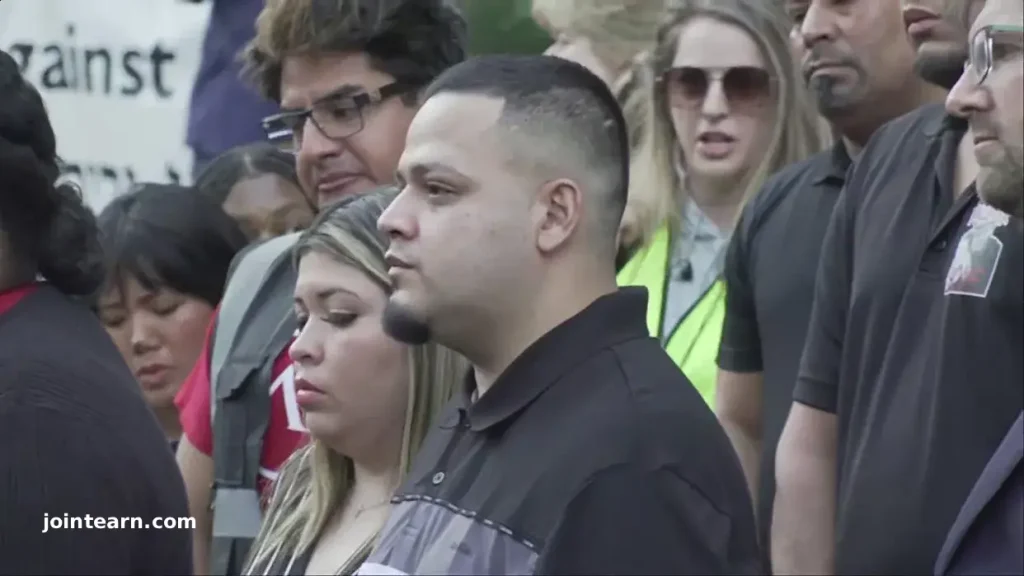
DOJ Confirms Plan to Deport Salvadoran Man to Liberia
Washington, D.C., October 24, 2025 — The Trump administration is preparing to deport Kilmar Abrego Garcia, a Salvadoran migrant at the center of a heated immigration and human rights dispute, to Liberia as early as October 31, according to newly filed court documents.
In filings made public on Friday, the Department of Justice (DOJ) and Department of Homeland Security (DHS) confirmed that Liberia has agreed to accept Abrego Garcia and that diplomatic assurances have been secured regarding his treatment once removed.
The DOJ stated that it received “diplomatic assurances regarding the treatment of third-country individuals removed to Liberia from the United States,” and officials are now “making the final necessary arrangements for [Abrego Garcia’s] removal.”
“Liberia is a thriving democracy and one of the United States’ closest partners on the African continent,” the DOJ wrote. “Although [Abrego Garcia] has identified more than twenty countries that he purports to fear would persecute or torture him, Liberia is not on that list.”
Liberia Becomes Latest Proposed Destination in Deportation Saga
This latest development comes after months of legal wrangling over where Abrego Garcia might be sent. Uganda, Eswatini, and Ghana were all previously mentioned as potential destinations — but all rejected the transfer.
Liberia is now the first nation to formally agree to receive him, though the move has drawn condemnation from immigration lawyers and human rights advocates, who say deporting a Salvadoran to a nation with which he has no connection violates international norms.
Earlier this year, Abrego Garcia declined a plea deal that would have allowed him to be deported to Costa Rica, his preferred destination, in exchange for a guilty plea to felony smuggling charges — charges he continues to contest.
Legal Proceedings and Allegations of “Vindictive Prosecution”
Abrego Garcia’s legal battle has intensified in recent weeks. His lawyers have subpoenaed five government officials, including Deputy Attorney General Todd Blanche, to testify in an upcoming two-day evidentiary hearing in November.
The hearing will focus on claims that Abrego Garcia’s criminal case was the result of “vindictive and selective prosecution” by the Justice Department.
U.S. District Judge Waverly Crenshaw, who is overseeing the case, recently ruled that Abrego Garcia’s legal team had demonstrated a “realistic likelihood” of vindictiveness, ordering further discovery and witness testimony.
“The DOJ is pursuing a politically motivated case against a man who has already been wrongfully deported once,” said one member of the defense team. “This is about punishment, not justice.”
Wrongful Deportation and Renewed Detention
Abrego Garcia was wrongfully deported to El Salvador in March 2025, despite a 2019 immigration court ruling barring his removal due to the threat of persecution by local gangs.
He was returned to U.S. soil in June, after the Justice Department admitted to an “administrative error.” However, instead of being released, he was detained again by ICE in Pennsylvania, where he remains in custody.
The Trump administration continues to allege that Abrego Garcia is linked to the MS-13 gang and involved in human smuggling operations, though no formal convictions support those claims.
In fact, a 2022 traffic stop in Missouri, cited by federal prosecutors as evidence, resulted in no arrests or criminal charges. Police records from that incident indicate that Abrego Garcia was merely issued a warning for an expired license and released.
Homeland Security Pushes Deportation Despite Legal Challenges
The Department of Homeland Security has been at the forefront of executing deportation plans, insisting that Abrego Garcia’s case falls under the administration’s broader “zero-tolerance” policy on undocumented migration.
Officials say the move to deport him to Liberia is consistent with U.S. policy to remove individuals who have “exhausted all legal remedies,” even if that means sending them to third countries unrelated to their origin.
However, immigration attorneys argue that such actions amount to “deportation by proxy” — a practice condemned by human rights organizations for violating both U.S. asylum law and international refugee conventions.
Human Rights Concerns and Political Fallout
Critics of the administration’s immigration strategy have pointed to Abrego Garcia’s case as a symbol of systemic dysfunction within U.S. deportation policy.
“Sending a Salvadoran national to Liberia, thousands of miles from his family, without cultural or historical ties, is not only irrational but inhumane,” said Simon Sandoval-Moshenberg, one of Abrego Garcia’s attorneys.
Human rights groups, including Amnesty International USA, have warned that the administration’s actions could set a dangerous precedent — one in which deportations are used punitively rather than based on legitimate immigration criteria.
Meanwhile, right-wing commentators have praised the move as part of Trump’s “tough-on-immigration” stance, arguing it reinforces the administration’s commitment to national security and law enforcement.
What Happens Next?
With October 31 identified as the earliest possible deportation date, Abrego Garcia’s legal team is racing to file an emergency injunction to halt his removal.
A federal hearing scheduled for early November could determine whether the Justice Department’s deportation order stands or if the court intervenes once again.
Until then, Kilmar Abrego Garcia remains in ICE custody, awaiting what could be a defining moment not only for his personal fate but also for the future of U.S. immigration law and executive deportation powers.


Leave a Reply